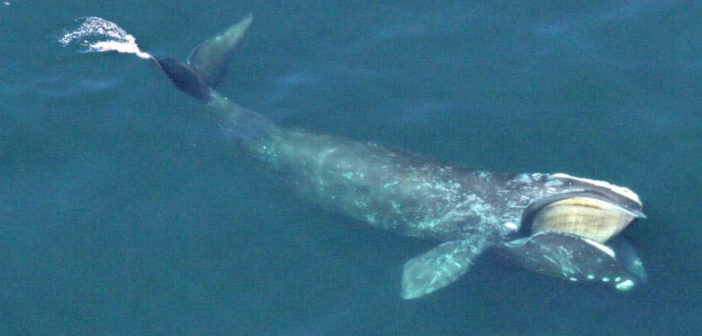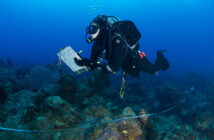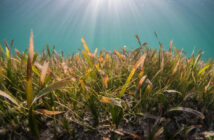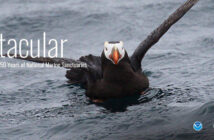Oceana Calls on NOAA Fisheries for Immediate Action to Save Whales from Extinction.
A new estimate from NOAA Fisheries finds the North Atlantic right whale population plummeting. With only about 360 North Atlantic right whales remaining, Oceana is calling on NOAA Fisheries to take immediate action to save the species from extinction.
Below is a statement from Whitney Webber, campaign director at Oceana in the United States, and Kim Elmslie, campaign director at Oceana Canada:
“The new estimates that only about 360 North Atlantic right whales remain underscores the need for immediate action to protect this critically endangered species. The time to act is now. We know that North Atlantic right whales are getting entangled in fishing gear and hit by vessels. We must reduce the number of fishing lines in the water and require vessels to slow down when right whales are present. Oceana calls on the U.S. and Canadian governments to act now to strengthen protections for these whales before it’s too late.”
Background
North Atlantic right whales were named for being the “right” whale to hunt because they were often found near shore, swim slowly and tend to float when killed. They were aggressively hunted, and their population dropped from peak estimates of up to 21,000 to perhaps fewer than 100 by the 1920s. After the whaling of North Atlantic right whales was banned in 1935, their population increased to as many as 483 individuals in 2010. Unfortunately, that progress has been reversed.
Collisions with vessels are one of two leading causes of North Atlantic right whale injury and death. North Atlantic right whales are slow, swimming around 6 miles per hour, usually near the water’s surface. They are also dark in colour and lack a dorsal fin, making them very difficult to spot. Studies have found that the speed of a vessel is a major factor in collisions with North Atlantic right whales. At normal operating speeds, many vessels cannot maneuver to avoid them, and North Atlantic right whales swim too slowly to be able to move out of the way. This puts them at great risk of being struck, which can cause deadly injuries from blunt-force trauma or cuts from propellers.
Entanglement in fishing gear used to catch lobster, snow crab and bottom-dwelling fish like halibut, flounder and cod is the other leading cause of North Atlantic right whale deaths. Fishing gear from the U.S. and Canada entangles an estimated 100 North Atlantic right whales each year, and about 83% of all North Atlantic right whales have been entangled at least once. Ropes have been seen wrapped around North Atlantic right whales’ mouths, fins, tails and bodies, which slows them down, making it difficult to swim, reproduce and feed, and can kill them. The lines cut into the whales’ flesh, leading to life-threatening infections, and are so strong that they have severed fins and tails, and cut into bone.
To learn more about Oceana’s campaign to save North Atlantic right whales from extinction, please click here.









